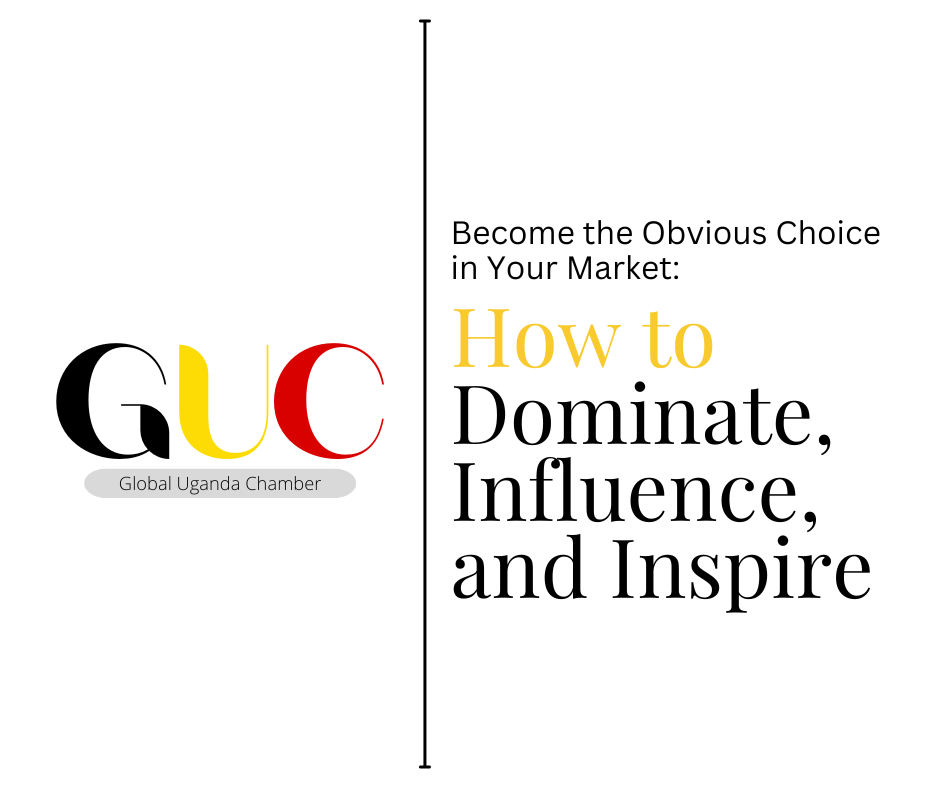Introduction: A Critical Metric for Business Success
In the dynamic world of business, financial health is the cornerstone of sustainability and growth. Among the many financial metrics that businesses track, one of the most significant yet often overlooked is the Net Working Capital Ratio. For businesses associated with the Global Uganda Chamber (GUC), understanding and optimizing this ratio is not just important—it is absolutely essential for survival in a competitive market.
The Net Working Capital Ratio (NWC Ratio) represents a business’s ability to cover its short-term liabilities with its short-term assets. In simple terms, it’s a measure of financial stability, liquidity, and the ability to fund day-to-day operations without relying on external financing.
Urgency for Action: Why Your Business Needs to Act Now
Ugandan businesses are facing unprecedented challenges and opportunities in the global marketplace. Inflation, exchange rate fluctuations, and geopolitical risks are constantly putting pressure on business owners. Without a solid grasp of their working capital position, businesses risk facing cash flow issues, operational disruptions, and even bankruptcy.
Global Uganda Chamber (GUC) members, as well as other businesses in Uganda, must take proactive steps to understand the strategic significance of the NWC ratio. Time is running out. Without it, businesses could find themselves at a severe disadvantage, unable to compete with more financially stable counterparts.
What is the Net Working Capital Ratio?
The Net Working Capital Ratio is calculated as follows:
NWC Ratio = Current Assets / Current Liabilities
This ratio reveals how well a company can meet its short-term obligations with its short-term assets. A ratio above 1 is generally considered healthy, meaning the company has more assets than liabilities and can comfortably meet its obligations. A ratio of less than 1, however, signals potential liquidity problems that could jeopardize operations.
Why the NWC Ratio Matters to GUC Members
For businesses affiliated with the Global Uganda Chamber (GUC), the Net Working Capital Ratio is an essential barometer for several reasons:
1. Ensuring Liquidity and Operational Efficiency
A strong NWC ratio means a business can continue its daily operations without disruption. Without sufficient liquidity, operations can grind to a halt, leading to missed opportunities, unfulfilled orders, and ultimately, lost revenue.
The Ugandan market is becoming more competitive, and businesses cannot afford to face cash flow bottlenecks. GUC members must constantly track this ratio to ensure they have enough liquidity to manage operations, especially in uncertain times.
2. Supporting Growth and Expansion
Businesses that maintain a positive NWC ratio have the financial flexibility to invest in growth. Whether it’s launching new products, entering new markets, or expanding operations, having a solid working capital base enables businesses to seize opportunities as they arise.
Uganda’s growing economy presents a wealth of opportunities for businesses, but only those with a strong financial foundation can scale successfully.
3. Improving Risk Management
A weak NWC ratio leaves businesses vulnerable to external shocks. Fluctuations in the market, changes in consumer demand, or disruptions in supply chains can cause significant strain on cash flow. Monitoring and improving the NWC ratio enables businesses to mitigate risk and prepare for unforeseen challenges.
4. Investor Confidence and Credibility
Investors are more likely to support companies that demonstrate solid financial management. A positive NWC ratio boosts investor confidence, signaling that the business is capable of managing its finances responsibly.
For GUC members looking to attract local and international investors, financial stability is a key selling point.
Strategic Approaches to Improving Your NWC Ratio
Now that we’ve established the significance of the NWC ratio, it’s time to take action. Here’s how businesses in Uganda and associated with the Global Uganda Chamber (GUC) can optimize their NWC ratio for greater financial success:
1. Efficient Cash Flow Management
Proper cash flow management is essential to maintaining a healthy NWC ratio. Businesses should implement systems to monitor and forecast cash flow, ensuring that short-term liabilities can be met with available assets.
GUC members should work to ensure their accounts receivable and payable cycles are optimized to prevent cash flow gaps.
2. Increase Current Assets
Increasing current assets, such as inventory, accounts receivable, and cash equivalents, strengthens the NWC ratio. Businesses should invest in efficient inventory management systems and ensure that receivables are collected promptly.
3. Manage Short-Term Liabilities
Reducing short-term liabilities is another key strategy. Businesses should negotiate better payment terms with suppliers or extend credit periods where possible. This can ease pressure on short-term liabilities, improving the NWC ratio.
4. Improve Profitability
Businesses with higher profits generate more cash flow, allowing them to strengthen their NWC ratio. Therefore, increasing profitability through better cost control, pricing strategies, and operational efficiency should be a key goal.
5. Create a Cash Cushion
Establishing an emergency fund or a cash reserve helps businesses manage unexpected challenges without disrupting their operations. Building a financial cushion also enhances the NWC ratio and creates a buffer for uncertain times.
The Risks of Ignoring the NWC Ratio
Businesses that ignore their NWC ratio put themselves at grave risk. A low NWC ratio often signals liquidity problems that can lead to insolvency. Without sufficient working capital, businesses may be forced to rely on high-interest loans, leading to a vicious cycle of debt.
Moreover, poor financial management can damage relationships with suppliers and customers, as businesses struggle to meet payment deadlines. A weak NWC ratio ultimately erodes the business’s reputation, making it harder to secure funding, retain customers, and attract top talent.
Conclusion: The Time for Action is Now
The Global Uganda Chamber (GUC) offers immense opportunities for businesses to expand and thrive, but the NWC ratio is a fundamental metric for navigating today’s volatile business environment.
For businesses to succeed in Uganda’s growing market, financial prudence is key. The Net Working Capital Ratio provides a clear, actionable framework for ensuring liquidity, improving risk management, and unlocking growth opportunities.
Business owners and leaders associated with GUC must take urgent action to assess their NWC ratio. Time is running out to ensure financial sustainability and long-term success. Without a solid understanding of your working capital, your business will struggle to keep up in a rapidly changing environment.
The future of your business depends on the decisions you make today. Will you continue to ignore your NWC ratio, or will you act decisively to optimize your financial health and secure your place in Uganda’s competitive market? The choice is in your hands.
Act now to ensure a prosperous future for your business and remain competitive in the ever-evolving business landscape.




